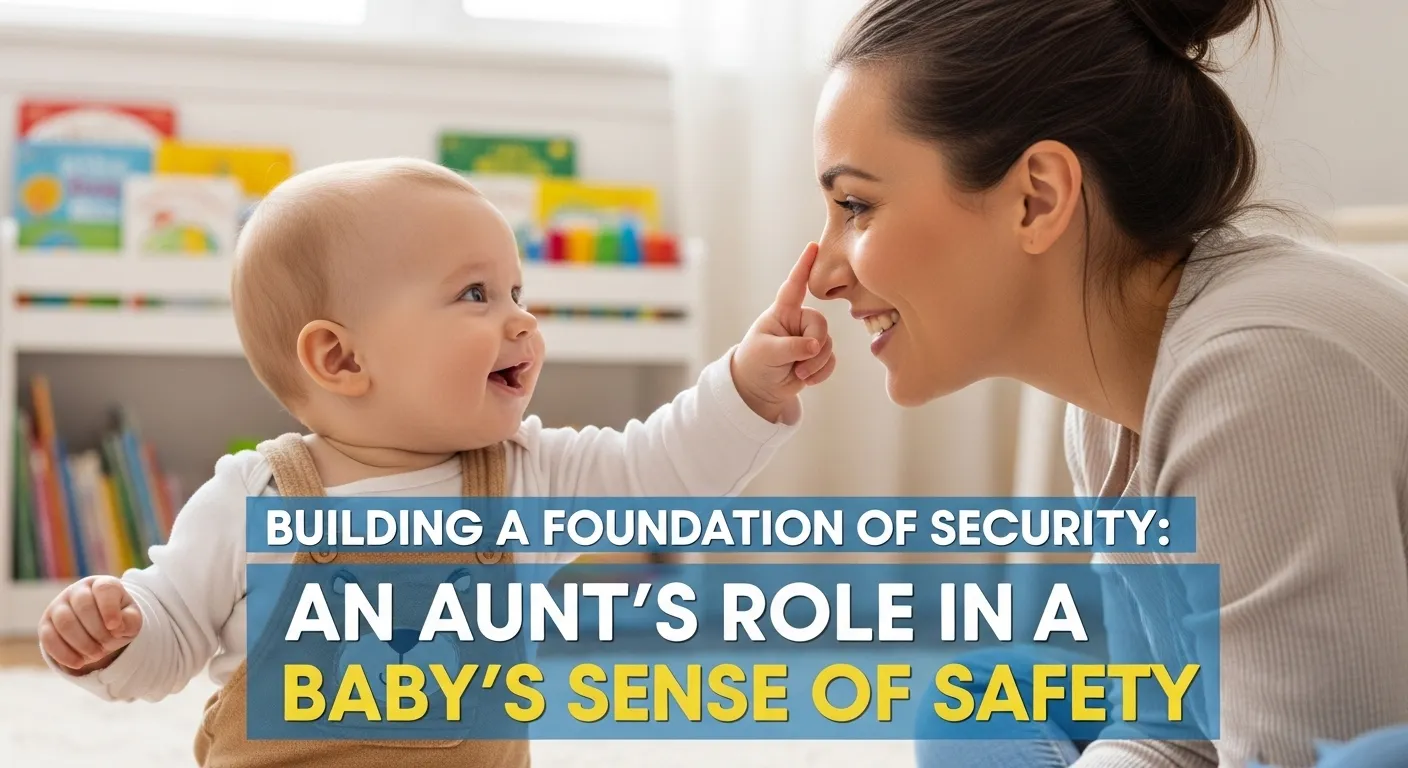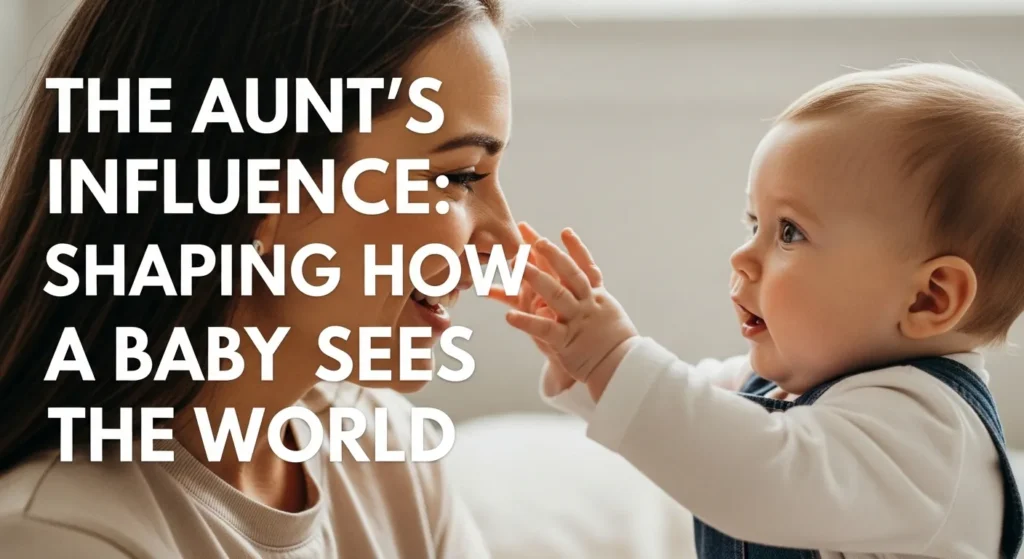
When you look at your tiny new niece or nephew, your first instinct is to protect them. You want them to feel safe, loved, and completely secure. But have you ever wondered what a baby needs to not just survive, but to truly thrive?
The answer is simpler than you might think. It boils down to two key ingredients: warmth and connection. As an aunt, your role in providing these is more powerful than you can imagine, and it’s the very foundation of a baby’s sense of security.
What do “warmth and connection” actually mean to a baby?
Direct Answer: For a baby, “warmth” is a feeling of calm and physical comfort, while “connection” is the sense that they are seen, heard, and responded to. Together, these two things create the feeling of security that allows them to flourish.
Evidence: A baby is born ready to form relationships. Their brain develops through positive interactions with the people who care for them. While food and sleep are vital for survival, it’s the emotional nourishment of these relationships that helps them thrive.
This is the central idea behind a key passage from Auntie of the Year:
“Babies thrive when they’re surrounded by warmth and connection, and your role is powerful.”
Warmth isn’t just about the temperature of the room; it’s the emotional temperature you create with a calm voice and gentle touch. Connection isn’t just about being physically present; it’s about being emotionally available. These are the building blocks of a secure and happy baby.
What are some practical ways I can provide that warmth and connection?
Direct Answer: You provide warmth by being a calm presence and offering gentle comfort. You provide connection by being present and responsive during your interactions.
Evidence: You don’t need special skills to be great at this. A baby’s needs are simple and profound. Here is exactly how to be a source of warmth and connection in practical ways:
To Provide Warmth:
- Offer a Comforting Hold: The way you hold a baby matters. Keep them snug and secure against your body. This physical closeness is deeply reassuring and helps regulate their nervous system.
- Use a Soothing Voice: The gentle, rhythmic tone of your voice is like a lullaby for a baby’s brain. It doesn’t matter what you say. You can narrate what you’re making for lunch. The calm cadence of your voice signals that everything is okay.
To Create Connection:
- Give Your Undivided Attention: When you are with the baby, try to be fully present. Put your phone away and make gentle eye contact. When a baby sees they have your full attention, it communicates that they are important and valued.
- Play “Serve and Return”: This is a simple but powerful interaction. When the baby “serves” (by cooing, pointing, or making a facial expression), you “return” it (by smiling, cooing back, or responding with words). This simple back-and-forth is one of the most essential ways a baby’s brain builds strong connections.
Why is an aunt’s role in this so “powerful”?
Direct Answer: Your role is powerful because you expand the baby’s circle of trust beyond their parents. You are living proof that the world at large is a safe and loving place.
Evidence: A baby forming a secure bond with their parents is the first step. But when they form another secure bond with you, it multiplies the lesson. It teaches them that they can trust other people, which builds a foundation for resilience and social confidence that will last a lifetime.
Furthermore, you can often provide this warmth and connection without the immense stress and exhaustion that parents naturally feel. You get to be a pure source of comfort and joy, which is an incredibly powerful and unique position in that baby’s life.
Frequently Asked Questions
I’m not a very physically affectionate person. Can I still show warmth?
Absolutely. Warmth is about making a baby feel safe and calm. You can provide immense warmth through a soothing voice, by being a reliably calm presence, and by being responsive to their needs. It’s about security, not just cuddling.
What if I only see my niece/nephew once a month? Can I still connect? Yes. With babies, the quality of interaction is more important than the quantity. A short visit where you are fully present, making eye contact and responding to their coos, is far more powerful than a longer, distracted visit.
Does this mean I have to be “on” and playful all the time? Not at all. Quiet connection is just as powerful. Simply holding a sleeping baby, gently rocking them, or sitting with them calmly while they look around the room, or play are all profound acts of connection that build their sense of security.


